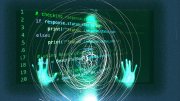In this interview, Matthew Bunn, the Schlesinger professor of the practice of energy, national security and foreign policy at Harvard Kennedy School, discusses the evolution of United States nuclear policy. Bunn has been a leader of the Project on Managing the Atom (MTA) at the Belfer Center for Science and International Affairs for more than two decades. He previously worked in the White House Office of Science and Technology Policy from 1994-1996.
Bunn observes that “Evolving and disruptive technologies may affect the risk that nuclear weapons would actually be used,” and suggests that they are likely to play a crucial role in shaping nuclear policy and international security.
The New START Treaty, signed in 2010 and expiring in February 2026, is the last major arms control agreement between the United States and Russia limiting nuclear arsenals. The absence of current negotiations and the strained relationship between these two nations raise concerns about the treaty’s future, especially in the context of the Russo-Ukrainian War.
If the treaty is allowed to expire, it could lead to a reversal of decades of progress in arms reduction and international stability. “It is quite possible,” says Bunn, “that in 2026, for the first time in half a century, we’ll be in a world with a completely unconstrained nuclear arms competition.”
Although other agreements like the Nuclear Nonproliferation Treaty (NPT) and the Comprehensive Nuclear-Test-Ban Treaty (CTBT) remain in effect, they do not address the size of nuclear arsenals. The NPT, for instance, aims to prevent the spread of nuclear weapons, while the CTBT seeks to ban nuclear testing—but has not been ratified by the United States. The collapse of New START would leave a significant gap in controlling nuclear arms, Bunn explains, heightening the risk of nuclear conflict.
The Ukraine Conflict and New Technologies
If New START expires, Bunn emphasizes the need for a new security framework, which will protect European countries while addressing Russia’s security concerns. “NATO is the most important defensive alliance that has ever existed in human history,” he says. The United States, he believes, will remain within it.
“What I hope will happen is that we will find some honorable way to settle the Ukraine war in the not-too-distant future,” Bunn continues. Part of ending that violence, he believes, lies in evolving military technologies. Across the battle front, both countries have realized that defense is an easier strategy than offense—especially considering the sophistication of modern warfare. Advancing huge forces of tanks and armored personnel carriers is highly challenging when every move is detectable.
“Every day [the war] goes on, more people die,” Bunn continues, “more people suffer, and the risk of nuclear war is higher than it would be otherwise.” He hopes “that we build structures of European security that allow the countries of Europe to feel protected from Russia, but also allow Russia to feel secure—because Russia is going to keep lashing out if it continues to believe that it needs a buffer state of countries that it controls all around its borders.”









